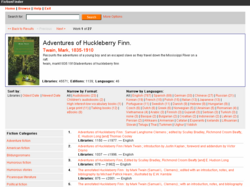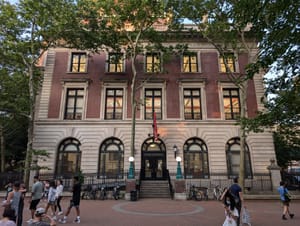 The Reading 2.0 conference has had some nice coverage.
The Reading 2.0 conference has had some nice coverage.
One of the interesting takeaways for me was the variety of requirements or use cases that drive service, and the dangers of substituting either-or discussion for and discussions.
I kept thinking of two non-exclusive emphases: conversation and evidence.
Major network presences are interested in providing ‘good enough’ responses to queries and in enhancing the network experience of users. They will automate as much as possible. This is useful in many contexts and creates real value. However, in some cases libraries need to do other things. For example, some group of libraries are interested in the scholarly record, in the integrity and authenticity of documents, in the integrity over time of citation (ensuring that the cited item is available in its cited form). Clearly, these issues are very much alive in the archival community. These discussions move one towards evidential integrity as a value, and the need for processes and structures to maintain it. This is a potentially costly activity over time, and it is variably exercized by libraries. It imposes requirements that not all services need to meet. Indeed, it is not entirely clear from here how we will secure the scholarly record in coming years as it diversifies into many digital forms that pose curation challenges.
We are seeing interesting developments around information services and ‘conversation’. Again think of the major web presences: they are mobilizing the edge of user contribution. They have embraced tagging, reviews, recommendations and a variety of other ways of enhancing the ‘conversation’ about resources. Conversation is a good way of finding things out, and we make judgements all the time in our conversations about what to believe, or what to act on. This type of activity is a welcome addition to our services, and one that we need to pursue.
Think of something like FRBR in this context. In some contexts one wants to know something about Huck Finn – something general about the ‘work’, or to find any copy of it. One may be interested in a conversation about it. In other contexts one may need to have access to a particular copy with a certain provenance, or to one which has been annotated, or access to a particular version of a critical edition. Needs vary. Use cases are plural. (I mention Huck Finn just because I was asked to speak about it at the conference.)
We need to support conversations and evidential integrity: and not either-or.
(Incidentally, related to this, I continue to believe that talking about libraries in terms of ‘providing access to information’ is not very helpful: it says too little about them, and too much. Everybody provides access to information now: what is the distinctive impact of the library?)
Related entry:
Share
More from LorcanDempsey.net



